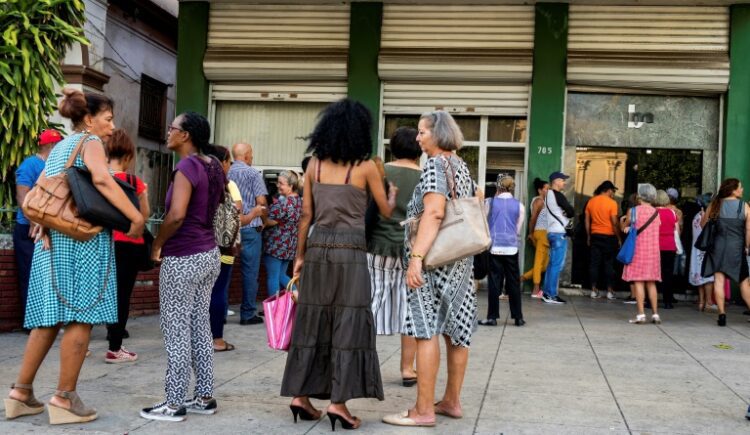Cuba continues to be in turmoil as repeated blackouts raise concerns about food, water supply, and the nation’s economic future.
The Cuban government is scrambling to restore the national grid after widespread outages throughout the past weeks. Residents are struggling to sleep in the heat, food spoils, and water supply falters.
The outdated water supply system is failing as well, leaving 600,000 people without regular access to water. The island returned to regular power cuts lasting up to 20 hours a day after a week of almost complete darkness.
The situation worsened when the Antonio Guiteras power station shut down, causing a ripple effect across the grid. A retired engineer from Guiteras explained to The Guardian, “It’s very hard to restart a power station. You need to produce a lot of electricity just to get it going.”
Built in 1989, Guiteras has suffered from ongoing neglect. “There was a scheduled maintenance program, but it was never followed,” the engineer said, describing a system pushed to its limits. The government blames the 62-year-old U.S. trade embargo for the state of the power grid. President Miguel Díaz-Canel mentioned “financial and energy persecution” hindering resource imports. However, the ongoing malaise has spiraled over the past few years, rather than decades.
For years, Cuba relied on allies like Russia and Venezuela for support, but those nations are facing their own challenges. In Venezuela’s case, more than 7.7 million people have left their country over the past years amid the country’s economic, political and social collapse. The majority – more than 6.5 million people – have been hosted in Latin American and Caribbean countries, according to the UN Refugee Agency. And prospects are not improving as Venezuela is increasingly isolated following its decision to claim victory in the July presidential elections despite not providing supporting documentation.
In a recent address, Prime Minister Manuel Marrero announced that the private sector would have to pay more for power while the government seeks renewable energy solutions. Despite abundant sunshine, many solar projects have failed due to financial constraints. A deal with a Chinese firm aims to build solar farms in exchange for access to Cuba’s nickel deposits, but skepticism remains regarding the expertise needed.
Protests during this crisis have been minimal, with residents primarily expressing frustration by banging pots and pans. Many appear exhausted, and government officials have warned against any “indecent” behavior. The atmosphere has grown tense, with increased intimidation of journalists leading to several fleeing the country.
Amid the crisis, over 850,000 people have fled Cuba for the United States over the past three years, a number that has contributed to the island’s steep population decline. A report issued by the International Organization for Migration (OIM) in September revealed that over 140 Cubans have died attempting to reach Florida in rafts in 2024, an 18% increase compared to 2023, with several months still remaining in the year.
Source link : http://www.bing.com/news/apiclick.aspx?ref=FexRss&aid=&tid=6728649a42954f47b05acaaa0ceb729e&url=https%3A%2F%2Fwww.ibtimes.com%2Fcuba-could-face-complete-collapse-power-grid-financial-crisis-spirals-3749343&c=52518736421861439&mkt=en-us
Author :
Publish date : 2024-11-03 14:09:00
Copyright for syndicated content belongs to the linked Source.
